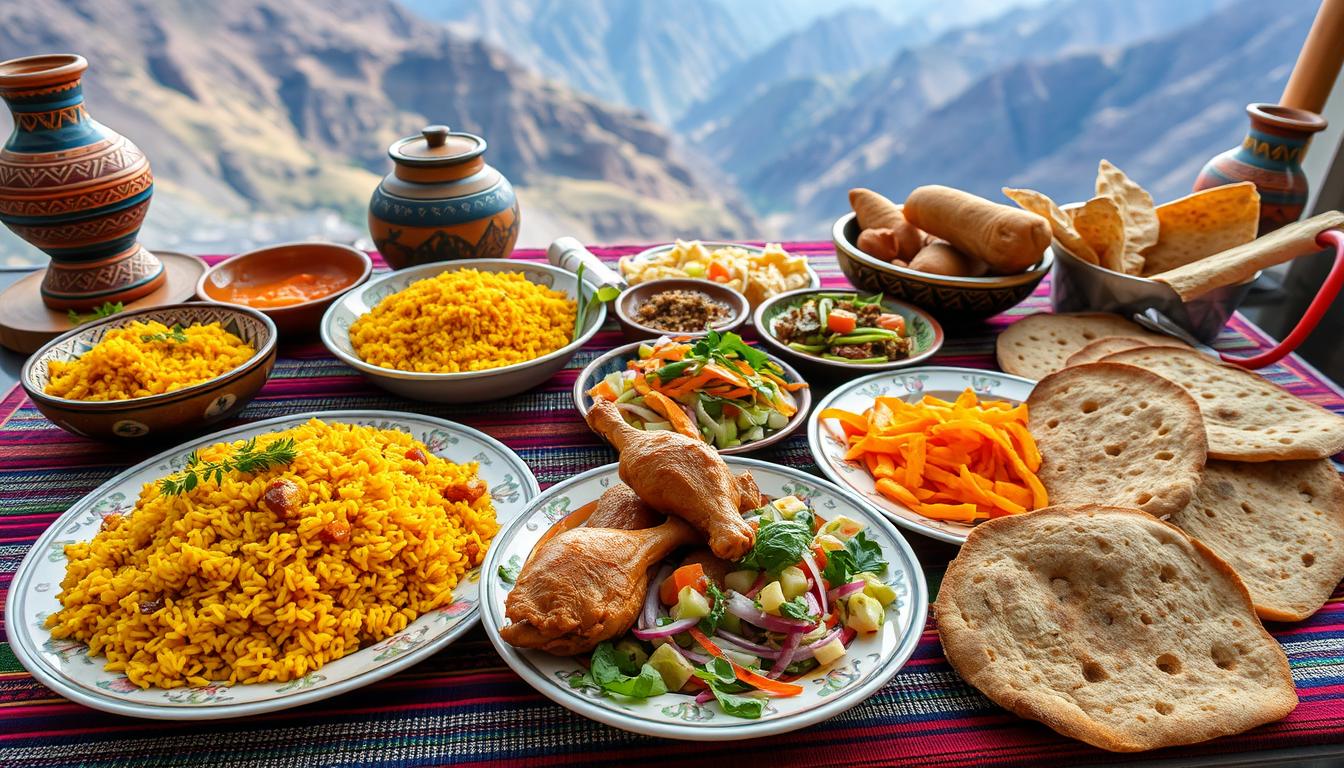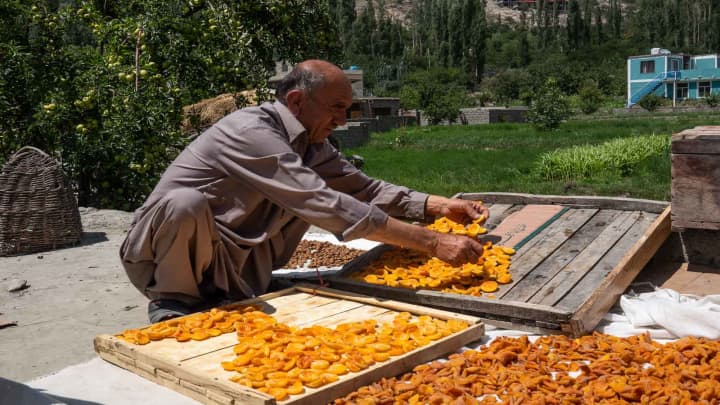Daily Diet of the Hunza People

Food plays a big role in how healthy and strong people feel. Eating good food every day gives the body what it needs to grow, stay active, and avoid getting sick. One group of people who show this very well are the Hunza people. They live in the mountains of Pakistan and are known for living a long time and staying healthy even as they get older.
Simple, Natural Foods

The Hunza people eat simple, natural food. Their meals include dried apricots, barley, fresh fruits, vegetables, and sometimes goat milk. They do not eat a lot of sugar, meat, or processed foods. Instead, they focus on fresh, homemade meals that are full of nutrients.
These healthy choices give them vitamins, fiber, and good energy to stay active and productive in their daily lives. Many people believe that Hunza's healthy eating habits help them avoid diseases like diabetes and heart problems.
Core Foods in the Hunza Diet
- Dried Apricots - A primary source of natural sugars and vitamins
- Barley - The main grain providing sustained energy
- Fresh Fruits - Seasonal varieties grown locally
- Vegetables - Garden-fresh and nutrient-dense
- Goat Milk - Occasional protein and calcium source
- Clean Mountain Water - Pure and mineral-rich
Traditional vs. Modern Diets
This is especially important when we compare their eating habits to modern diets that rely heavily on processed snacks and sugary drinks. Unlike many people today, Hunza sticks to traditional, plant-based meals. Their food is grown locally, prepared simply, and eaten in small portions, which supports their bodies without overloading them.
| Traditional Hunza Diet | Modern Western Diet |
|---|---|
| Fresh, locally grown foods | Processed and packaged foods |
| Minimal sugar consumption | High in refined sugars |
| Plant-based with minimal meat | High meat and dairy consumption |
| Small, balanced portions | Large portion sizes |
| Natural preparation methods | Chemical preservatives and additives |
The Secret to Their Longevity
Their meals not only help them feel strong, but they also seem to slow down signs of aging. The Hunza lifestyle is a good example of how a healthy diet can support long-term health and help people live longer, happier lives.

Their diet teaches us that going back to nature and fresh food is not only simple, but also smart. This way of eating is full of benefits: it boosts energy, improves digestion, and helps avoid many modern diseases. When people eat naturally grown and carefully prepared food, their bodies respond in positive ways.
Generations of Wisdom
These food choices are not based on trends, but on generations of wisdom passed down through their community. What is more, these healthy habits are not just based on tradition, they are backed by modern research.
Studies show that plant-based diets filled with fruits, vegetables, and whole grains can reduce the risk of many health problems, including high blood pressure, heart disease, and even some types of cancer. This shows that the Hunza people are not just lucky, they are making daily choices that protect their health and give them strength as they age.
Benefits of the Hunza Daily Diet
- Sustained Energy - Natural foods provide steady energy throughout the day
- Disease Prevention - Lower rates of diabetes, heart disease, and cancer
- Enhanced Digestion - High fiber content supports digestive health
- Anti-Aging Effects - Antioxidants help slow the aging process
- Mental Clarity - Nutrient-rich foods support brain function
- Physical Strength - Balanced nutrition maintains muscle and bone health
A Way of Life, Not Just Food
Their food is more than just nutrition, it is part of a way of life that keeps them moving, connected, and full of energy. The way they eat shows that health begins at home, with what we put on our plates every day.
And to fully understand how their diet supports their long life, we also need to look at how food connects with overall health, which takes us to the next important point: the strong link between food and health.
Practical Takeaways
We can learn from their approach to daily nutrition:
- Choose whole foods over processed ones - Fresh fruits, vegetables, and grains should form the base of your diet
- Eat locally and seasonally when possible - This ensures maximum nutrient content and freshness
- Practice portion control - Eat until satisfied, not overly full
- Minimize sugar and processed foods - These provide empty calories and can harm long-term health
- Make meals at home - This gives you control over ingredients and preparation methods
- Stay hydrated with clean water - Pure water is essential for all bodily functions
The Hunza people demonstrate that healthy eating should not be complicated or expensive. Their simple approach to daily nutrition offers us valuable lessons that we can apply to improve our own health and well-being in the modern world.